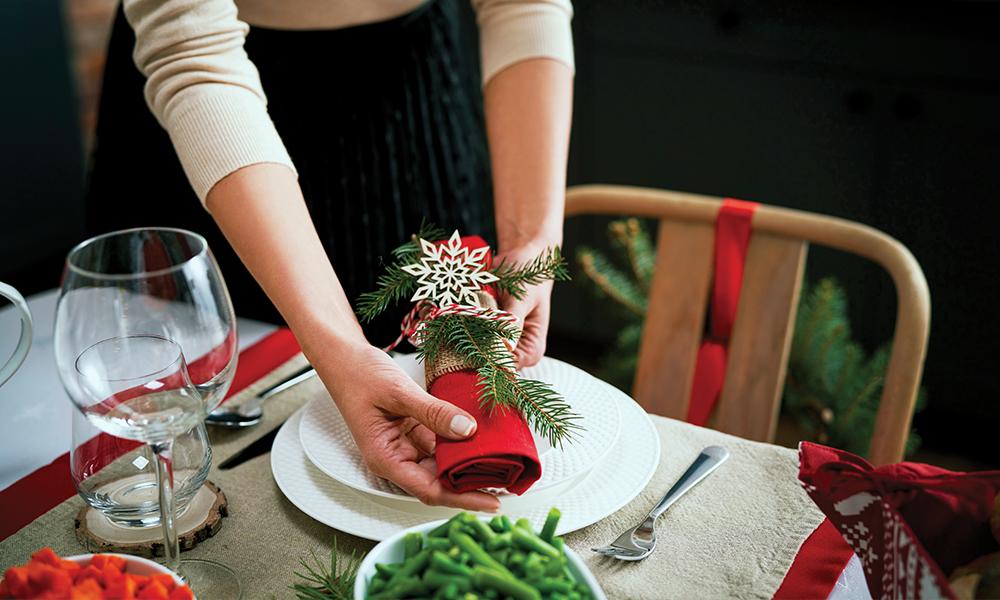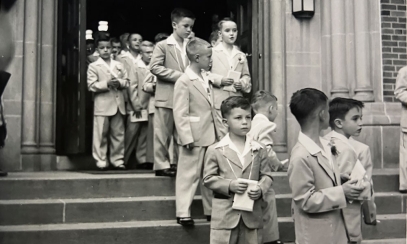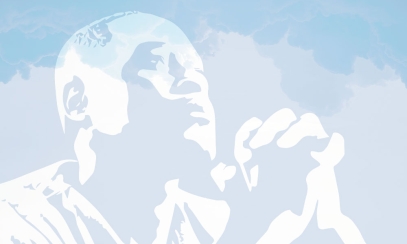
Ghosts of Christmases Past
Some Christmases are happy; some are sad. During the war years, soldiers spent lonely Christmases in foreign lands, while their families back home missed them dearly. Today, we still have soldiers around the world; and we also have friends and relatives sick, maybe dying, with COVID-19 — and we can’t even visit them.
Some Christmases are happy; some are sad. During the war years, soldiers spent lonely Christmases in foreign lands, while their families back home missed them dearly. Today, we still have soldiers around the world; and we also have friends and relatives sick, maybe dying, with COVID-19 — and we can’t even visit them.
Sad Christmases
Many years ago, when I was home from college for the holidays, my grandfather was sick and dying in the hospital on Christmas Eve. A lot was going on for all family members, so I volunteered to go sit with him, which everyone thought was wonderful of me to do. Little did they know that I wanted to get out of the house before a certain set of dull visitors arrived for the evening. So, I spent a quietly sad hospital visit with my grandfather on his last Christmas Eve.
And then there was Brian, our 2-year-old son, for whom we got the news on a Christmas Eve that he had terminal cancer.
My first response to the doctor was, “Well, he is so young, surely he will recover.”
The doctor’s response was, “He has a 5 percent chance of survival.”
What a shock, to say the least. In addition to figuring out the next steps with our son, how were my wife and I, on Christmas Eve, going to tell his 3-year-old brother and 5-year-old sister, who were back home with the grandparents? If I remember right, we didn’t, not until after Christmas Day. And Brian would die six months later.
Happy Christmases
Of course, we all had many happy Christmases when we were young and got a sled, a bicycle or a new baseball glove. My happiest memories, though, are of the high school and college years, the house parties, the dances and the singing of Christmas carols, both commercial and religious.
Backing up a bit, as a grade school choirboy, Midnight Mass was a highlight of the season, even when I was trying to stay awake.
One particularly pleasant memory up in the choir loft was when Mr. Kloentrup, the robust tenor soloist, leaned over my shoulder and said, “You’re going to take my place some day.”
That was high encouragement coming from a man of his stature, who was known particularly for his mesmerizing rendition of “O Holy Night.”
After college came the night when I was driving home with my future wife from one of those house parties on a classic Christmas Eve. Fresh snow was falling, and the streetlights made it sparkle. I dropped her off at her family home in quaint Mount Adams, overlooking downtown Cincinnati and across the river to Kentucky.
Upon leaving and driving home across the river, the snow was coming down so enchantingly that I called her up after midnight and said, “How about if I come back over and we go out about Mount Adams in the snow?”
We did, and that quintessential Christmas Eve was forever captured in our shared memory.
Once we got married, our first Christmas was understandably special, too. Never mind that our first Christmas tree fell over, right before our eyes, while we were standing back and admiring it from across the room. The special part was that we each took $10 to find a Christmas treasure for each other. One of those presents is still standing on our mantle — a small pottery chalice that we used for home Masses presided over by visiting priests back in the more liturgically liberal post-Vatican II era.
Christmas now
As for the current potentially sad Christmas of continued COVID-19, I am going to think back to all the happy Christmases before the pandemic — the times with our four children alone, then with their spouses, and now with the 12 grandchildren, followed by rejoicing that the individual families are now building their own traditions in their own homes in their own towns.
My wife and I, finding ourselves blissfully alone once again, will look forward to a party for two every evening, all the while holding out hope for one more quintessential, snowy Christmas Eve to rekindle the romance of the season. Who knows — we might even dance!
Managing the memories
So, what to do with all those memories of Christmas past, particularly the sad ones?
Here are a few suggestions:
- As for the ghosts, instead of keeping them buried inside of you, talk them out, get them out in the open and relive those times with surviving loved ones who shared the same loss. A few tears might be shed, but with each tear might come a healthy release from the bondage of those memories.
- Sharing happier memories of your lost loved ones can allow the happier times to live alongside the sad ones and make the sad memories a little easier to live with.
- Study the stages of dying, death and grief and reflect on how you went through them or are still going through them. Knowing and recognizing these stages can help you realize that grief is normal, and your grief is too.
- Do something to bring closure to the memory of lost loved ones. With all the immediate ancestors gone and me the last one standing, I decided to put a small monument with the family name on it above the collection of ancestral graves. It was not as expensive as you might think. And, there are certainly several less expensive or even free things we might do to bring us some sense of closure.
- Lastly, write about your grief like I am doing right now. Maybe you will or won’t publish it, but at least send your writing to someone you love and trust who shares your grief — or just send it to yourself. The mere writing of it will be the most important antidote for your grief.



